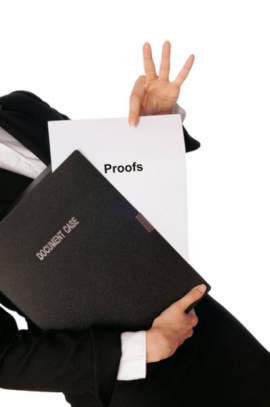
DIY Divorce

A Quick Guide to DIY Divorce
Is DIY Divorce Right for Me?
Dot it yourself divorce may save you and your spouse both time and money. But, if you and your spouse are not confident you can reach an agreement on a number of different issues, you shouldn’t consider a DIY divorce. If you try to go through a divorce yourself and find disagreements slowly piling up, you will have lost both time and money.
Additionally, you should be confident you can fill out a number of forms correctly and with detail. Depending on your state and conditions within your marriage, you will need to fill out forms that are either provided for free from your state or within purchased packets. If you fill out these forms incorrectly, the mistakes will undoubtedly delay your divorce.
What Should my Spouse and I Agree Upon?
A DIY divorce is best for spouses that are in agreement about a quick and easy divorce.
Property
There should be a limited amount of joint marital property, assets, and liabilities. Many spouses considering a DIY divorce will split their property, open separate accounts, and take on a fair share of the liabilities before even filing for divorce.
Spouses must be honest with each other about their assets because if there is any evidence that a spouse is hiding property, the other spouse may decide the DIY divorce isn’t working and pursue a divorce with a lawyer.
Children
If there are children involved, the parents should agree upon child custody, child support, as well as any insurance for the children. Parents must agree about picking children up from school events, extracurricular events, and social events. Additionally, the parents must agree on times and places to pick up the children from the other spouse.
There must be absolutely no evidence of child abuse within the home if parents are pursuing a DIY divorce, for if a judge investigates and finds there was child abuse at one point, he or she will immediately declare the two spouses hire attorneys and even put a restraining order against the abusive parent.
Spousal Support
Spousal support is not usually an issue during a DIY divorce. Both spouse generally agree to split the property and assets and then support themselves except for child support. However, if there is spousal support involved in the divorce, the two spouses should have a reasonable plan that a judge will look over and agree upon. Both spouses need to reach a “fair and reasonable” settlement within a DIY divorce in order for a judge to sign the dissolution of marriage decree.
What Form do I need for a DIY Divorce?
As mentioned above, you’ll need to check with your state and see if the Judicial Branch offers free documents. Some states, like Arizona, make people fill out a form, pay a fee for each document, and take the form to the County Clerk. Other states offer comprehensive free forms to the public. If you are considering a DIY divorce, you’ll need the following forms plus any forms your state’s Judicial department requires:
• Petition and Summons
• Responses
• Financial Affidavit
• Child Support and Child Custody Guidelines
• Permission for Case to Move to Trial



















